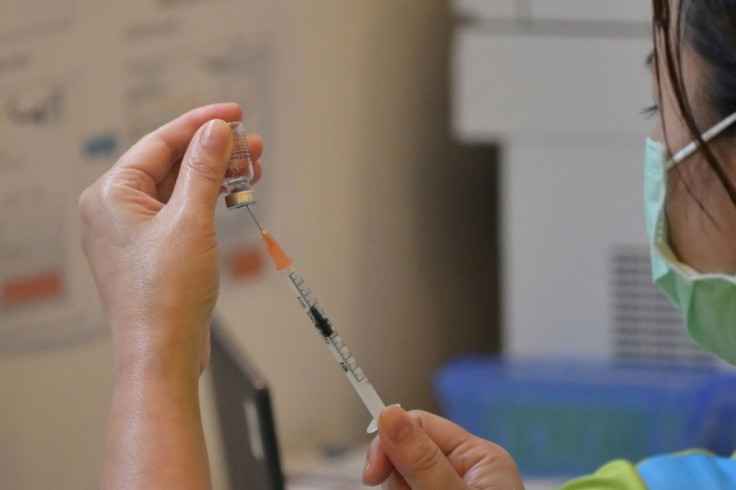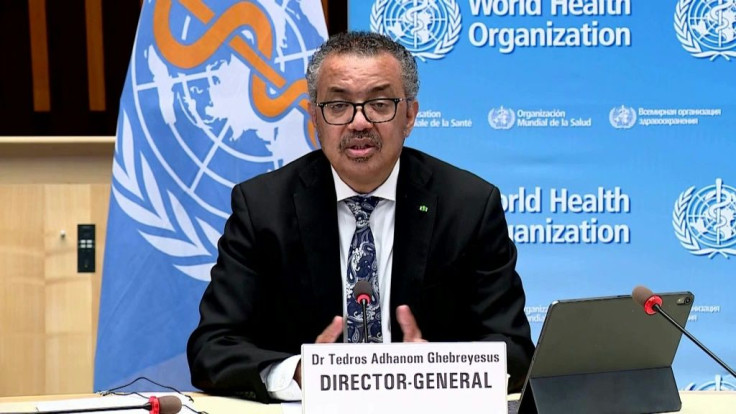WHO Approves China's Sinovac Covid Jab
The World Health Organization on Tuesday approved the Sinovac Covid-19 vaccine for emergency use -- the second Chinese jab to receive the WHO's green light.
The UN health agency signed off on the Beijing-based firm Sinovac's two-dose vaccine CoronaVac, which is already being deployed in several countries around the world.
"I'm happy to announce that the Sinovac-CoronaVac vaccine has been given WHO emergency use listing after being found to be safe, effective, and quality-assured," WHO chief Tedros Adhanom Ghebreyesus told a press conference.
"The easy storage requirements of CoronaVac make it very suitable for low-resource settings," he added.
"It's now crucial to get these life-saving tools to the people that need them quickly."
The WHO said the emergency use listing (EUL) gives countries, funders, procuring agencies and communities assurance that the vaccine has met international standards.

Last month Sinopharm became the first Chinese vaccine to be approved by the WHO.
The organisation has also given EUL status to vaccines being made by Pfizer/BioNTech, Moderna, Johnson & Johnson, and the AstraZeneca jab being produced in India, South Korea and the EU, which it counts separately.
WHO's listing paves the way for countries worldwide to approve and import a vaccine for distribution quickly, especially those states without an international-standard regulator of their own.
It also opens the door for the jabs to enter the Covax global vaccine-sharing facility, which aims to provide equitable access to doses around the world, particularly in poorer countries.
Currently only AstraZeneca and some Pfizer jabs are flowing through the scheme.
"The world desperately needs multiple Covid-19 vaccines to address the huge access inequity across the globe," said Mariangela Simao, the WHO's assistant director general for access to health products.

"We urge manufacturers to participate in the Covax facility, share their know-how and data and contribute to bringing the pandemic under control."
"WHO recommends the vaccine for use in adults 18 years and older, in a two-dose schedule with a spacing of two to four weeks," the agency said in a statement.
"Vaccine efficacy results showed that the vaccine prevented symptomatic disease in 51 percent of those vaccinated and prevented severe Covid-19 and hospitalisation in 100 percent of the studied population."
The Sinovac vaccine contains an inactivated form of coronavirus that cannot cause the disease. It also has a substance that helps strengthen the immune response to the vaccine.
When given the shot, the immune system identifies the inactivated virus as foreign and makes antibodies against it, which will then recognise the active virus and defend the body against it.
Few people aged over 60 took part in the clinical trial of Sinovac's jab.
However, the WHO said there should be no upper age limit on the vaccine as there is "no reason to believe it has a different safety profile" in older generations.
The Sinovac jab is already in use in 22 territories around the world, according to an AFP count.
Apart from China, the countries using Sinovac include Chile, Brazil, Indonesia, Mexico, Thailand and Turkey.
"China will continue to work with the international community to promote the accessibility and affordability of Covid-19 vaccines especially in (the) developing world," he said in a tweet.
© Copyright AFP 2024. All rights reserved.



















